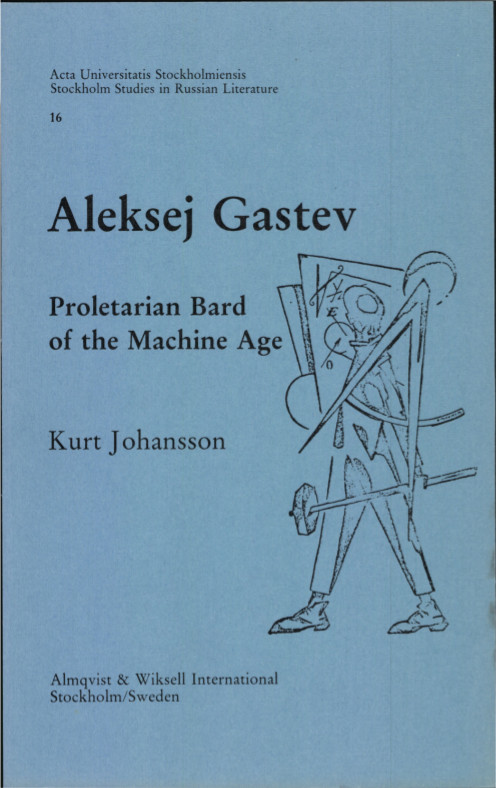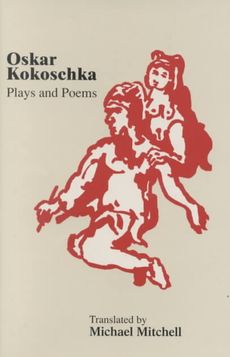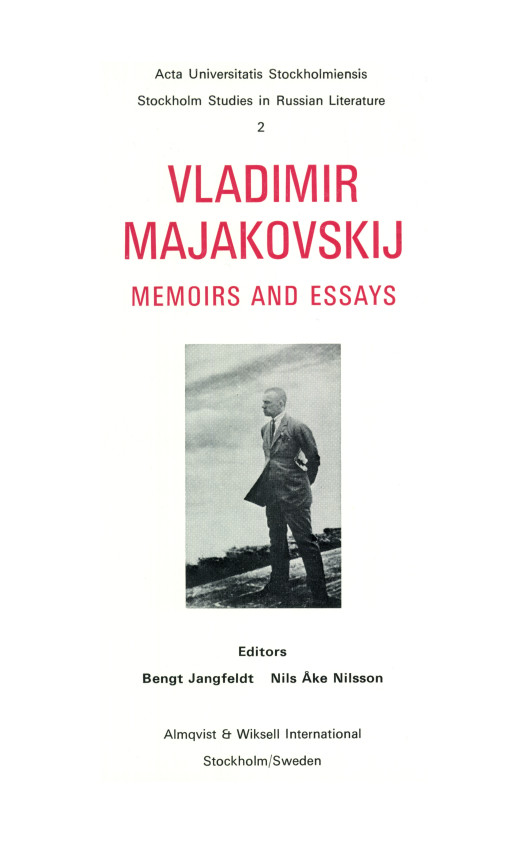Kurt Johansson: Aleksej Gastev: Proletarian Bard of the Machine Age (1983)
Filed under book | Tags: · 1910s, biography, machine, management, poetry, proletariat, russia, taylorism

This book attempts to give an outline of Aleksej Gastev’s life and works primarily up until 1920.
Aleksej Gastev (1882-1941?) belonged to the Russian proletarian intelligentsia. He was an active revolutionary, a journalist with syndicalist leanings, a metal-worker and trade-union leader, and one of the best proletarian poets. In later years he became perhaps the most important champion of the Taylor system and scientific management in Russia; as the founder and leader of the Institute of Labour (CIT) in Moscow he trained hundreds of thousands of new workers for Soviet industry. In 1938 he fell a victim to the Stalinist terror.
Besides presenting his biography, the present study tries to trace the development of Gastev’s Utopian ideas about the creation of a New Man suited to the industrial society of the future. In his articles and poems the worker is so Intimately fused with machines that he adopts their rhythm and functional movements, himself becoming “mechanical”. One chapter is specially devoted to Gastev’s poetry, the collection Poézija rabočego udara (“The Poetry of the Factory Floor”). Four prose poems are analyzed in detail. These describe the future development of the proletariat, and also show how Gastev ‘s manner of writing gradually becomes a kind of “Taylorized” poetry, that has been strongly influenced by futurism.
Publisher Almqvist & Wiksell International, Stockholm, 1983
Stockholm Studies in Russian Literature series
ISBN 9122006141
170 pages
PDF (updated on 2013-12-8)
Comment (0)Oskar Kokoschka: Plays and Poems (1973/2001)
Filed under book | Tags: · drama, expressionism, poetry, theatre

The well-known painter, Oskar Kokoschka, also produced a considerable and significant body of literary work: plays, a few poems, essays and autobiographical stories. The present volume contains all his plays (some in more than one version) and the poems, plus one short prose passage.
All the pieces in this collection, apart from the play Comenius, were written in the period 1907-1918. The plays, despite Kokoschka’s dislike of the term, reflect the style of Expressionism current in Germany during the period. Indeed, the early ones anticipated and, to as certain extent, helped to define Expressionism. The titles of some – Job, The Burning Bush, Orpheus and Eurydice – reflect the use of the mythic mode. Comenius, which was started in the 1930s and only completed in 1972, is a large-scale historical panorama, focusing on the figure of the Czech humanist and educational reformer, Jan Amos Komenský. Comenius’ fate reflects Kokoschka’s own experience of an increasingly dark world of conflict and oppression. His ideal of a humanity guided by the light of reason cannot find realization amid the strife and carnage of the Thirty Years’ War; at the end of the play it is reduced to a tiny spot of light in Rembrandt’s picture The Night Watch. The Burning Bush, Orpheus and Eurydice and Comenius appear in English translation for the first time.
Originally published as Das schriftliche Werk, Hans Christians, Vienna, 1973-76
Translated by Michael Mitchell
Afterword by Karl Leydecker
Publisher Ariadne Press, Riverside, California, 2001
Studies in Austrian Literature, Culture, and Thought Translation series
ISBN 1572410418, 9781572410411
250 pages
PDF (no OCR)
Comment (0)Vladimir Majakovskij: Memoirs and Essays (1975)
Filed under book | Tags: · avant-garde, history of literature, literature, poetry

“This collection of materials on Majakovskij is the result of Swedish-Russian cooperation, with the Russian side represented by such prominent contributors as Lilja Brik, Elsa Triolet, N. Xardziev, and V. Katanjan. As the highlight, the reader will unquestionably single out the memoirs by Lilja Brik and Elsa Triolet. Written in 1956, both were originally intended for the ill-fated second volume of materials on Majakovskij which was to appear in the series Literaturnoe nasledstvo and which Central Committee banned from publication in 1958.” (from a review by Halina Stephan)
Edited by Bengt Jangfeldt and Nils Åke Nilsson
Publisher Almqvist & Wiksell International, Stockholm, 1975
ISBN 9122000275
196 pages
PDF (updated on 2013-12-8)
See also:
Bengt Jangfeldt: Majakovskij and Futurism, 1917-1921 (133pp, 1976, updated on 2013-12-8)
VV Majakovskij, LJ Brik: Correspondence 1915-1930 (in Russian, 299pp, 1982) — the link is dead, anyone has a backup?

